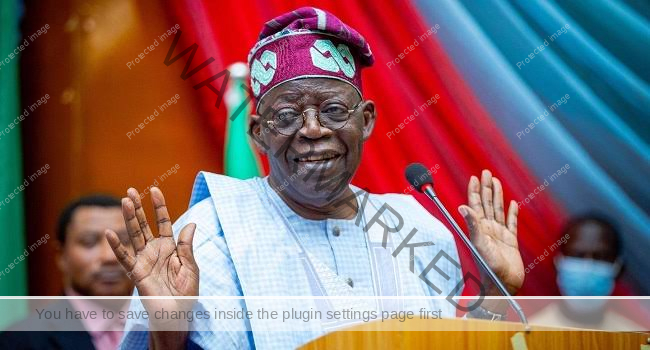Tinubu May Reintroduce Subsidy For Petrol As Nigerians Groan Under Harsh Economy •’Proposal On His Table’ – Source
President Bola Ahmed Tinubu is planning a policy reversal in the downstream sector of the oil industry as his government considers reintroduction of subsidy for premium motor Spirit also called petrol, to cushion the effects of economic hardship in the country.
According to TheCable, impeccable presidency sources said there is yet no final decision, but the proposal is “firmly on the table” as Nigerians continue to groan under harsh economic realities following the removal of petrol subsidy in May 2023.
Already, labour unions have threatened to embark on an indefinite strike if the petrol price further surges.
According to a presidency official, the “realistic” amount of petrol consumed in the country is now known following the removal of subsidy on Tinubu’s inauguration, hence the amount spent on subsidy “can now be controlled”.
On Monday, the Nigerian National Petroleum Company (NNPC) Limited said there are no plans to hike pump prices despite the rise in crude oil prices, landing cost, and fall in the value of the naira.
This is understood to be an option for Tinubu to keep the current prices, although private importers have not made a definite pronouncement on any possible adjustments.
But speculations around another increase in the pump price of petrol (currently at over N600) have caused tensions across the country, leading to panic buying in the early hours of Tuesday.
Since Tinubu announced the removal of the petrol subsidy, Nigerians have had no respite from price hikes.
Foreign exchange challenges, coupled with the unrestrained slump of the naira — Nigeria’s local currency — have led to a sustained upward trend, in the prices of goods and services.
On Monday, the Central Bank of Nigeria (CBN) said it plans to implement new measures to stabilise the naira against the dollar.
Weeks after Tinubu was inaugurated as Nigeria’s elected president, his administration — already fraught with legitimacy issues — quickly introduced several policies in a bid to revive the economy.
But with the current economic realities, it appears that these policies are not yet yielding the expected results.



